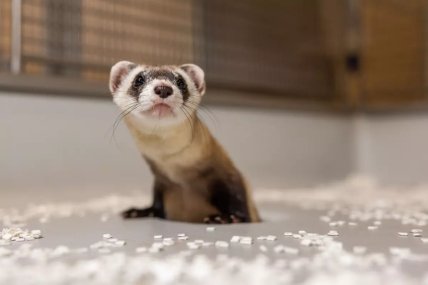For the first time in history, a cloned animal has produced offspring: the U.S. showcases the young of an endangered species (photos, videos).
In the USA, a female cloned black-footed ferret has given birth to healthy offspring. This marks the first instance in history where a clone has produced young.
This information is mentioned in a press release from the U.S. Fish and Wildlife Service. One pup did not survive, but the remaining male and female appear to be quite healthy.
The mother is a ferret named Antonia, who was cloned from a ferret named Willa, who passed away in 1988 at the San Diego Zoo. The father is a 3-year-old named Urchin from the Smithsonian National Zoo.

In 1979, the black-footed ferret was considered extinct; however, in 1981, a small population was discovered, which included Willa. Currently, the population has been restored to 350 individuals, all of which are descendants of seven surviving ferrets.
These animals are afflicted by diseases, habitat loss, and a decline in their primary prey—the prairie dogs. However, the most significant issue is inbreeding; due to the very low genetic diversity of the original population, some experts believe that the species can only be saved through cloning.
For instance, Antonia's genetic material exhibits three times more diversity than all other individuals of her species. As for her offspring, they will spend their entire lives under the supervision of specialists and will not be reintroduced into the wild.

The topic of cloning endangered species is the subject of numerous debates. For example, cloning Antonia took several decades and enormous resources, and the process was accompanied by several unsuccessful attempts. Some scientists argue that these efforts could have been better spent on more beneficial initiatives, such as habitat restoration.
Simply put, there is little point in increasing the population if there is nowhere for them to live. And since black-footed ferrets have lost their habitats in low-grass prairies due to intensive agriculture, the question arises as to whether they will be able to survive even if scientists help restore their genetic diversity.
As previously reported, scientists recently managed to capture a rare octopus on video. It was blissfully jumping along the ocean floor at a depth of nearly 5 kilometers.